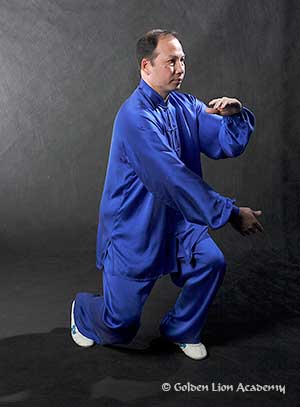 Tai Chi benefits the mind and body in many ways, it helps with stress, arthritis, pain control, illness prevention and health maintenance. Age is no barrier. Males and females from teenagers to seniors and the elderly can benefit.
Tai Chi benefits the mind and body in many ways, it helps with stress, arthritis, pain control, illness prevention and health maintenance. Age is no barrier. Males and females from teenagers to seniors and the elderly can benefit.
Tai Chi has long been recognised in China for its benefits as a system of health maintenance and for its curative and restorative qualities after illness and injury. In the West, more widespread practice and increasing positive research results are now leading to similar recognition for tai chi as a valuable form of exercise and self-healing.
From a Chinese perspective, all sickness and illness is the result of imbalances in the flow of chi (qi) or ‘life energy’. These imbalances may be recognised by an expert in this area of study as too much yin or yang causing stagnation, turbulence or impeded flow of chi and blood.
The proper thing to do according to Chinese traditional medicine is to correct the energy flow by ensuring a balance of yin and yang.
Techniques such as acupuncture, acupressure, moxibustion, chi kung (Qi Gong) exercises, chi breathing, chi meditation and chi diet are all designed to balance and harmonise the flow of chi energy.
To the Chinese, all healing is body-mind medicine because there is always the consideration of how the chi that is associated with the mind and emotion of both the patient and the healer powerfully influences the rebalancing of the life force chi energy.
The irregularities or imbalances can be corrected by any technique that encourages energy to flow correctly. In all these techniques, the state and focus of the mind plays an important role.
The traditional Chinese approach recognises this ‘body-mind’ connection and recommends tai chi exercise together with the deep breathing and mental focus associated with it in order to promote a balanced and smooth chi flow. This, in turn, promotes the well being and healing of both the body and the mind (the whole person).
Looking at tai chi from a Western understanding of the operation and structure of the human body, it is easy to appreciate the potential health and well-being benefits of this ancient programme. Don’t forget to read the Scientific Research section. The latest scientific trials are published in our Articles.
Tai chi is immensely satisfying. Whether you are a beginner or have been practising for many years the experience is the same. As we move into the slow, gentle, flowing movements we feel an emerging sense of well-being that arises out of the deep, profound and complex benefits of this ancient art.
It is little wonder that more and more people are choosing to make tai chi part of their lives. It is an ideal exercise for:
- Young people needing to chill out from a fast-paced super-pressured life style
- People recovering from illness
- Older people interested in keeping healthy and looking to prevent common age-related health issues.
Tai Chi Benefits on Pain Control
In traditional Chinese medicine, the movement and role of Chi or life force energy is thought to determine our health and well being. Blocked or stagnated Chi is the primary cause of disease, aches and pains. The aim of tai chi is to move in a way that opens the energetic pathways so Chi energy can flow freely.
Tai Chi assists in pain control, such as abdominal discomfort and colic, backache and limb pain that sometimes simulates intermittent claudication, dysuria, dyspareunia, or dysmenorrhoea.
The mechanisms responsible for such pains are unclear although the pain is sometimes ascribed to tension, acting directly or through a conversion process. Thus, it may be that by promoting relaxation and therefore reducing tension, tai chi assists in pain control.
Effects on Mind, Memory and Concentration
Tai Chi relaxes the neck and shoulder muscles, normalizing upper torso posture, which in turn relaxes the throat and expands the chest.
The rotary movements of tai chi relax the mid and lower spinal muscles, which in turn relaxes the lower rib cage and diaphragm, expanding the lower chest.
The diaphragmatic movements also re-adjust the spinal posture as well as increasing lung expansion. The empowerment of the breath prevents mucus and inhaled particles accumulating in the bronchi (breathing tubes) and the extra oxygen brought into the body helps burn up accumulated mucus as well as improving vitality. Improved oxygenation also enhances brain function, especially memory and concentration.
Tai Chi Benefits the Bowel and Digestive Systems
When the diaphragm moves correctly it massages and stimulates the abdominal and pelvic organs, helping to prevent digestive and bowel problems. Tai chi encourages diaphragmatic breathing whilst doing the movements and therefore may reduce or even eliminate some digestive and bowel disorders.
If you are interested in attending regular classes, please call us on our central telephone number 9796-1066 for class times and fees or email us through our contact-us form.
For more details on the types of classes, please click on the link.
